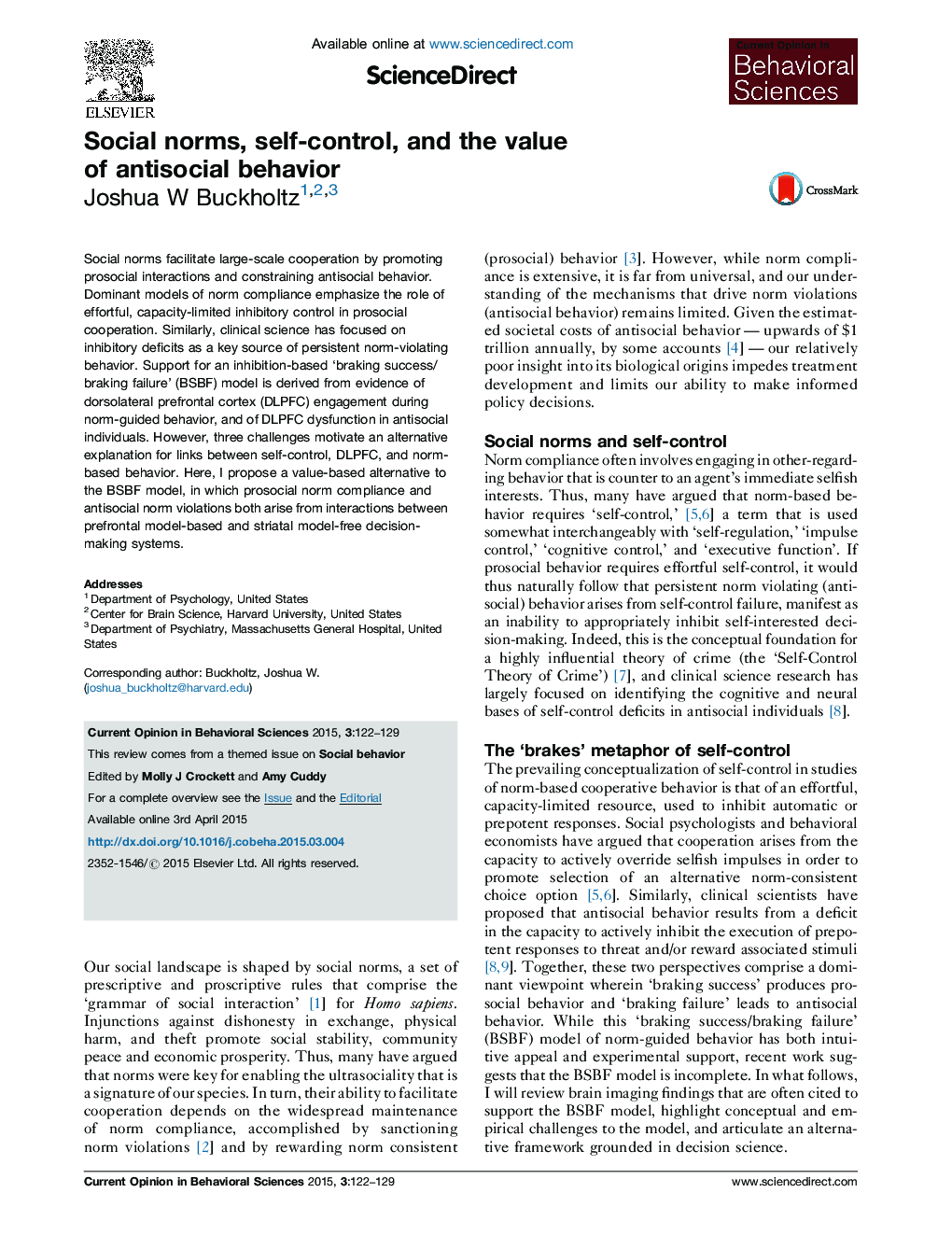| Article ID | Journal | Published Year | Pages | File Type |
|---|---|---|---|---|
| 4316396 | Current Opinion in Behavioral Sciences | 2015 | 8 Pages |
•Dominant models of prosocial and antisocial behavior emphasize the role of ‘self-control.’•‘Self-control’ is conflated with response inhibition, and conceptualized as a ‘brake’ on ‘bad’ behavior.•Here, I suggest that inhibitory control may be largely irrelevant, and propose an alternative value-based decision-making model.•Prosocial action selection may be the outcome of adaptive modulation of action value by norm-informed world models.•Antisocial decision-making may result from weak model-based modulation of model-free value signals.
Social norms facilitate large-scale cooperation by promoting prosocial interactions and constraining antisocial behavior. Dominant models of norm compliance emphasize the role of effortful, capacity-limited inhibitory control in prosocial cooperation. Similarly, clinical science has focused on inhibitory deficits as a key source of persistent norm-violating behavior. Support for an inhibition-based ‘braking success/braking failure’ (BSBF) model is derived from evidence of dorsolateral prefrontal cortex (DLPFC) engagement during norm-guided behavior, and of DLPFC dysfunction in antisocial individuals. However, three challenges motivate an alternative explanation for links between self-control, DLPFC, and norm-based behavior. Here, I propose a value-based alternative to the BSBF model, in which prosocial norm compliance and antisocial norm violations both arise from interactions between prefrontal model-based and striatal model-free decision-making systems.
